Hope you had a good Darwin day. The thing I keep coming back to about Darwin is this. The guy was training to be a clergyman, but dumped it when it became clear that the facts ran counter to his beliefs. I gotta respect that. That’s tough to do.
But if you think that’s tough, here’s an act for you. This Mormon biologist can give a talk about evolution while making a sculpture of Charles Darwin. And all without his head asploding from cognitive dissonance. Let’s have a listen as he talks about his mentor, Clayton White.
 “He became an important example to me of a first-rate scientist and a faithful member of The Church of Jesus Christ of Latter-day Saints.”
“He became an important example to me of a first-rate scientist and a faithful member of The Church of Jesus Christ of Latter-day Saints.”
Now Fairbanks believes with most biologists that evolution is the unifying theory in the field. And he is the same kind of mentor as White was to new generations of Mormon would-be scientists, helping them understand the importance of evolution without losing their faith.
Okay, full marks for accepting evolution. He’s not a dishonest idiot. But let me ask: what’s wrong with losing your faith? It hurts for a bit, sure, but then you’re free to accept reality without having to twist your brain into knots trying to make the facts fit your religious preconceptions. What’s so great about being able to do that? Shouldn’t a scientist be able to take the hit and accept reality directly? Particularly when his Mormon religion is strewn with beliefs that are explicitly refuted by evidence. (E.g. Book of Abraham, Book of Mormon, Old Testament creationism, and on and on.)
I hold to the view that science and religion conflict, and can’t be reconciled. Other people disagree, but it doesn’t help their case that some scientists go to church. That just means that people can wall off part of their brain from scientific examination. Like Jerry Coyne says in his wonderful article for the Edge:
True, there are religious scientists and Darwinian churchgoers. But this does not mean that faith and science are compatible, except in the trivial sense that both attitudes can be simultaneously embraced by a single human mind. (It is like saying that marriage and adultery are compatible because some married people are adulterers.)
I’m not even saying that Dr Fairbanks can’t do good work in biology and still hold religious beliefs. You just can’t do both at the same time. Even he admits this.
“We are obligated to examine experimental data and interpret it in an objective way, without allowing nonscientific beliefs to influence our interpretations,” Fairbanks says.
Great advice — but why shouldn’t religious beliefs therefore be discarded? They’re non-scientific. Why should he get to have it both ways when it comes to religion?
He continues:
But that is no reason to reject God or Mormon scriptures, which, he says, explain why God created the world, not how.
An old canard. Science explains how, religion explains why. Except that religion doesn’t explain why. It just gives you fluffy stories that you have to maintain faith in without being able to verify them.
I used to really look up to liberal Mormon thinkers who struggled to merge facts with fables, grappled with the difficulty of such an endeavour, and copped nothing but abuse from ignorant iron-rod believers. Now I think it’s the saddest thing I can think of, like someone who’s so close to understanding, but stopping themselves from taking the final liberating step. I actually think I’d rather talk to someone who argues that science is wrong and religion is right. At least then I’d be talking to someone for whom the truth matters.
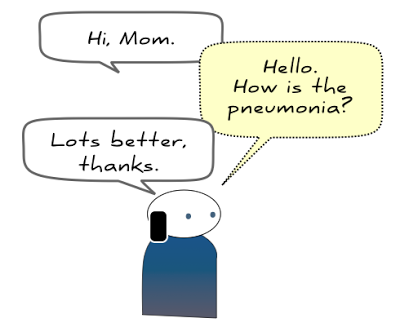

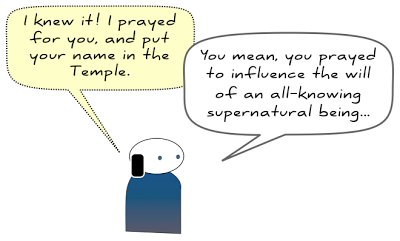
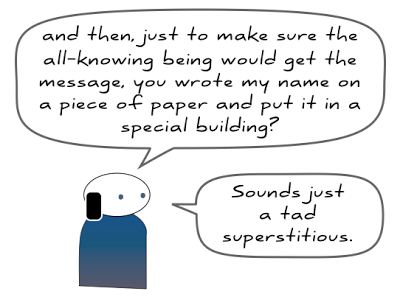
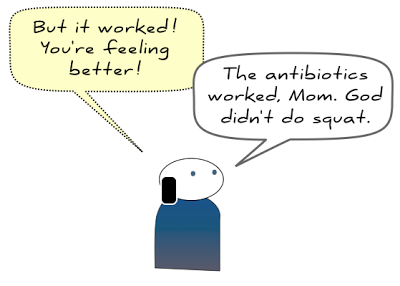

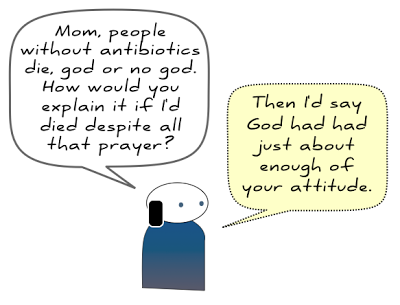
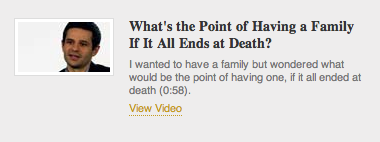

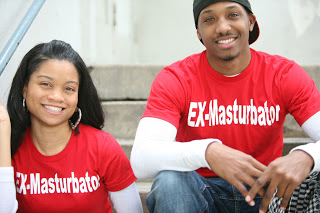



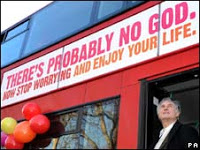


Recent Comments